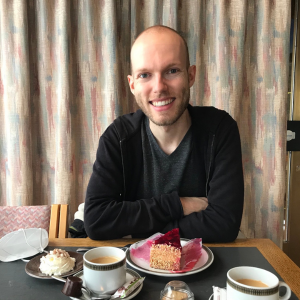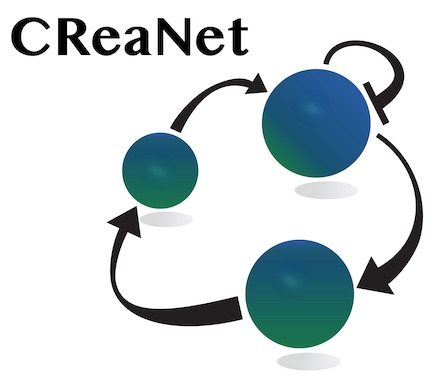
1. Please tell us a little about yourself. Where are you from and what is your research background?
My name is Benjamin and I was born in Frankfurt, Germany. I did my B.Sc. and M.Sc. degrees in Chemistry at the University of Mainz, Germany. During my Master studies and an internship in Prof. Rein Ulijn’s group in New York City, I decided to specialize in Organic Chemistry and Polymer Chemistry.
2. Tell us briefly about the research project you have been doing as a Marie Curie Fellow?
The project that I am working on in Prof. Eelkema’s group at TU Delft, Netherlands is widely speaking about the development of self-healing materials. Many self-healing materials already exist. However, in the context of CReaNet, the project tries to go a step further. We are trying to use Chemical Reaction Networks and different triggers to make a material that can be formed/degraded/perform self-healing on demand.
3. Why did you choose to apply for this particular project?
I enjoyed how this project fit into my background. I can benefit nicely from my synthetical and polymer skills that I brought along already, however, the project is still challenging me to acquire new skills in Material Science and different aspects of Dynamic Covalent Chemistry. So overall, the mixture of being able to apply my skills, yet still being pushed to learn many new things, was very appealing to me and sounded like a nice challenge.
4. As a reasercher, which goals and ambitions do you have for your future career?
I always felt pretty confused by all the choices there are. Not knowing exactly where you want to head can be discouraging. However, over the course of my Ph.D., I was able to analyze more in-depth which kind of tasks I enjoy most. I definitely want to get a look into industry after my Ph.D. – I have developed a passion for all things related to planning, optimizing, and safety, so I would love to find a job that allows me to use my chemical knowledge to optimize processes in order to run as smoothly and safely as possible.
5. Who is your favorite scientist?
I do not have one. I believe that academia (and our society) are often too much about glorifying individuals and chasing empty values like fame and success. We would be doing better if people focused more on their actual research and work-life-balance and less on achieving certain milestones or fame in their field. Everyone can do well in their field if they are working with passion in a non-toxic environment that is driven by individual development and mindfulness.
6. What was your first impression when you arrived in your host country?
As I come from Germany and have been to the Netherlands on holiday before, I already knew some parts of the country and the culture and I like it here. However, I was still surprised to find how incredibly direct and open the Dutch people can be. I enjoy their way of communicating criticism and it helps me to see mistakes or problems faster.
7. Why is your project important for society?
Most materials that are made today are not meant to degrade any time soon. However, there is a growing need in different fields for materials that can for example release compounds like drugs on demand or form for a pre-programmed amount of time upon which they degrade again. We are trying to fill this gap by developing materials that are responsive to external stimuli and can be degraded or strengthened as needed. This endows materials with more adaptable and useful properties.
8. Marie Curie fellowship requires a lot of travels, why mobility is important for research?
We have learned to appreciate communication online in these difficult last 2 years. While many things that used to be done in person have turned out to also work well online, there are simply some things that cannot be done via Zoom. Many ambitious projects require different equipment, input from many people and good cooperation to work. For this reason, ESRs need to be mobile: in order to adjust our surroundings to our ideas and not vice versa.
9. How did you find your passion for chemistry?
Like many people, I had quite fluctuating ideas as a kid about what I wanted to do when I am grown up. Most of these ideas however had curiosity as a common factor. I always knew that I wanted to somehow find out more about what is going on around us. Arguably, we may never be able to truly comprehend what reality is or how it works, but chemistry and physics come as close as we can. Frankly, the nice colors, loud bangs, and hands-on work in the lab might have played a role in why I have chosen chemistry over physics.
10. Do you have any advice for other young researchers who are considering applying for a Marie Curie fellowship?
If you are fine with living abroad, potentially quite far away from home, and you want to challenge yourself and learn a lot in the process: do it! The things I have learned here and the way this fellowship brings together people from different areas in science and different cultures have definitely exceeded my expectations by a long way.
